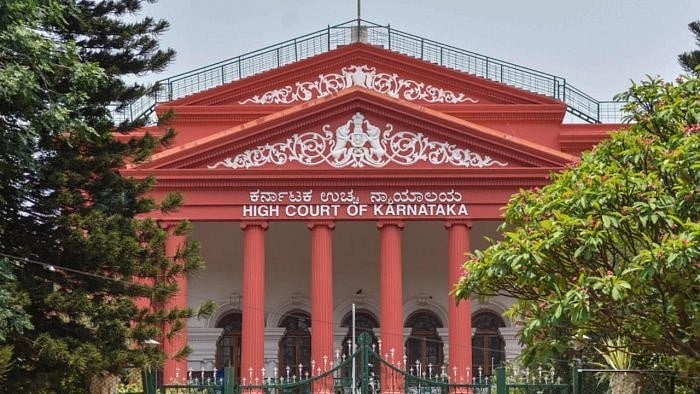
The Karnataka High Court
Credit: DH File Photo
Bengaluru: The Karnataka High Court refused to quash proceedings against a couple observing that there is evidence to show that they assaulted their daughter-in-law by pulling her hair.
Justice M Nagaprasanna said that merely because the offences under the Dowry Prohibition Act were dropped, it would not mean that the petitioners could walk away scot-free.
The father-in-law of the complainant, a government employee, and his wife, both residents of Hosapete, had challenged the proceedings before the Senior Civil Judge and JMFC, Kudligi.
The complainant had married the petitioners’ son on July 2, 2021. According to the complainant, she was pestered to bring 24 tolas of gold and Rs 50 lakh as dowry.
On April 1, 2022, she gave birth to a male child and subsequent to this, she was assaulted for dowry and the petitioners threatened that their son would marry another woman.
The complainant returned to her parent’s house in January 2023 and subsequently filed a complaint at the Kudligi police station against her husband and his parents.
The petitioners contended that while filing the chargesheet, the police had dropped the offences punishable under Sections 3 and 4 of the Dowry Prohibition Act and retained all IPC offences.
It was contended that when there is no demand of dowry, Section 498A of the IPC cannot be alleged against the petitioners, in particular. On the other hand, the complainant argued that she was tortured by the three accused and, therefore, it is a matter of trial for them to come out clean.
The court noted that there are pointed instances of torture meted out against the complainant. The chargesheet depicts the screaming of the daughter-in-law, heard by a neighbor, who had come to her rescue, the court noted.
“This being the observation in the summary of the chargesheet, merely because the offences under the Dowry Prohibition Act are dropped, it would not mean that the mother-in-law and father-in-law, who have tortured the daughter-in-law, could walk away scot-free. The Supreme Court in Aluri Venkataramana vs Aluri Thirupathi Rao case, observes that demand of dowry need not be an allegation for an offence under Section 498A of the IPC, if cruelty is prima facie met. The summary of the charge sheet discloses cruelty in the case at the hands by both the petitioners – mother-in-law and father-in-law - is clearly met,” Justice Nagaprasanna said.
The court also said, “There are scores and scores of cases where offence under Section 498A of the IPC is misused. Merely because there is misuse of the said provision, that does not mean in cases where there is real torture can be brushed aside. The case at hand is one such illustration.”